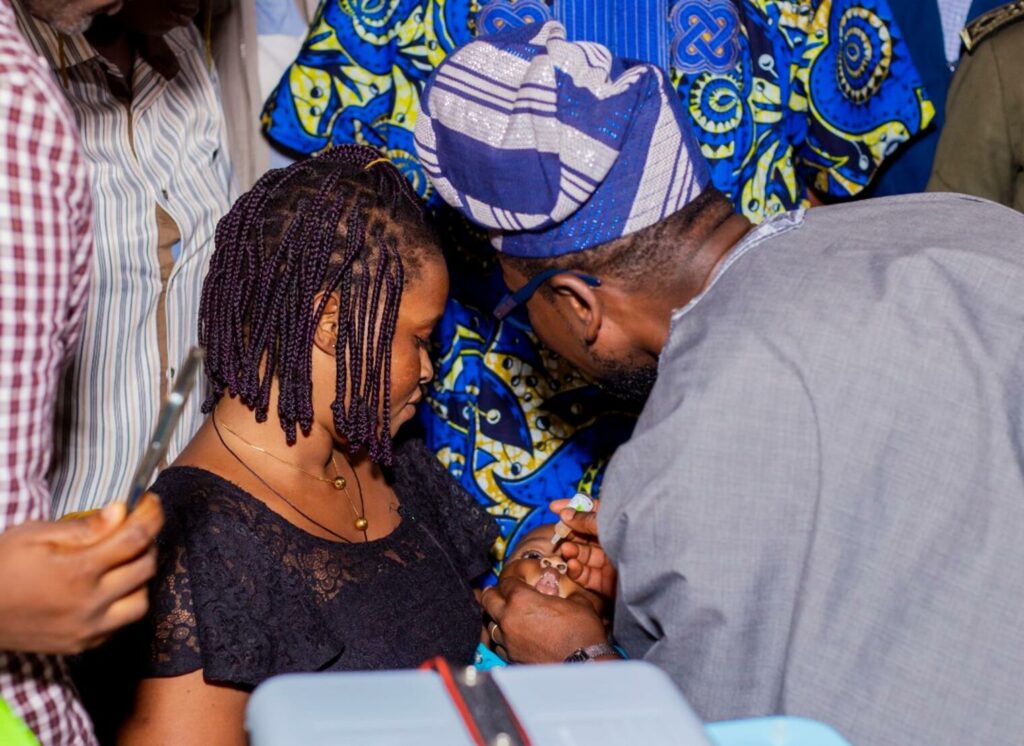Benin is deploying all its resources until June 23, 2025, to combat the remaining pockets of the disabling and deadly poliovirus. The Minister of Health, Professor Benjamin HOUNKPATIN, officially launched the polio vaccination campaign. The official ceremony took place on Friday, June 20, 2025, at the Djègan-Kpèvi Youth Center in Porto-Novo. The event was attended by the Prefect of the department, Dr. Marie AKPOTROSSOU, the Mayor of the municipality, Mr. Charlemagne YANKOTY, as well as various political and administrative authorities.
Benin is mobilizing all its efforts until June 23, 2025, to eliminate the last strongholds of the disabling and deadly poliovirus. Following the launch by the Minister of Health, health workers are already going from cities to remote villages to bring the life-saving two drops of vaccine to children aged 0 to 5 years, which will block this pernicious virus.
In his speech, Minister HOUNKPATIN praised the combined efforts of all stakeholders that have led to a significant reduction in polio cases. Benin’s performance in the fight against this disease has been commendable thanks to the coordinated actions carried out as part of the vaccination programs.
“The results achieved in the fight against polio are satisfactory. Polio cases have significantly decreased,” stated the Minister of Health. While congratulating the stakeholders, he urged everyone to continue their efforts to eradicate the remaining pockets of resistance identified in some municipalities through vaccination.
At the forefront of this effective response are the vaccination agents, particularly the community health workers. Addressing them, the Minister provided final guidelines to ensure a successful proximity strategy: “Your role is crucial. You are responsible for the quality of this vaccination campaign. Every household in your area must be visited. All children must receive the two vaccine doses, except for sick children, those born with low birth weight, and malnourished children. Engage with the families, ask the necessary questions before administering the vaccine,” he emphasized.
For his part, the UNICEF Resident Representative in Benin, Mr. Ousmane NIANG, stated that routine vaccination remains the only sustainable way to ensure good vaccination coverage and reduce child morbidity and mortality. While stressing the need to remain mobilized against polio, Mr. Ousmane NIANG highlighted the fight against misinformation, which continues to be a major obstacle to community engagement. “To address this, we need the involvement and participation of all stakeholders: religious leaders, local elected officials, civil society actors, health workers, wherever they may be,” he urged.







OTHER ARTICLES
Editorial — Prevent, inform, and act for women’s health in Africa
Kenya : Government Prioritises Maternal Health and Strengthens Support for Community Health Promoters
Strengthening pandemic prevention, preparedness, and response capacities in Senegal using the “One Health” approach